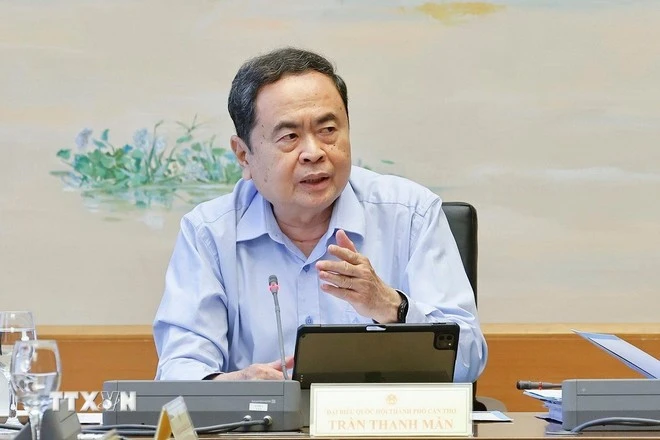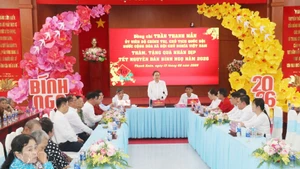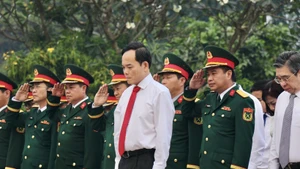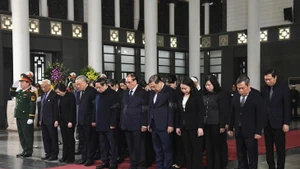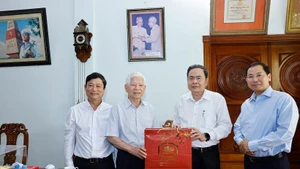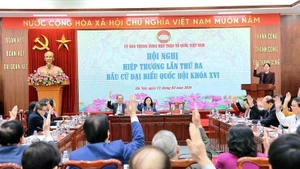As part of the ongoing 10th session, National Assembly (NA) deputies on October 21 discussed in groups the implementation of the 2025 socio-economic development plan and the proposed plan for 2026, reviewing achievements, identifying intertwined challenges, and proposing key measures to sustain growth.
Most legislators voiced their support for the Government’s report, describing it as a comprehensive and dynamic overview of Viet Nam’s post-pandemic economic recovery.
Deputy Ta Dinh Thi from Ha Noi noted that the Vietnamese economy has shown strong resilience, maintaining one of the fastest growth rates globally. He highlighted the maritime economy as a major growth engine, with over 1,700 km of coastal roads completed, far exceeding targets. With trade turnover reaching approximately 900 billion USD, Viet Nam now ranks among the world’s top 20 trading nations. Coastal tourism has also surged, with an estimated 22–23 million international visitors expected in 2025.
All 15 socio-economic targets for the year have been met or exceeded, with GDP growth revised up to 8%, surpassing the initial goal of 6.5–7%.
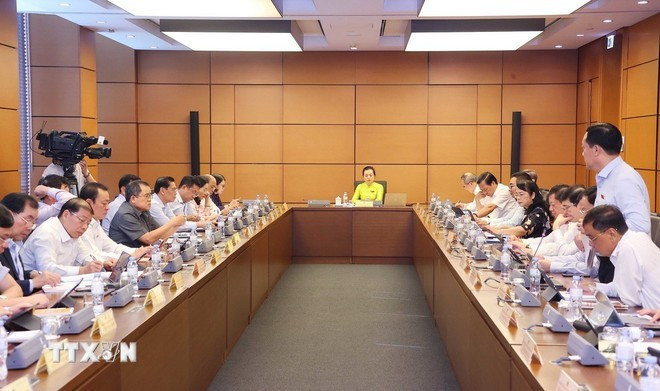
However, delegates underlined lingering bottlenecks, particularly in public investment disbursement, which remains sluggish at just about 50% of the annual plan as of mid-October.
Concerns were also raised over soaring real estate prices, especially in the apartment segment, putting pressure on middle-income groups, alongside sharp fluctuations in the gold market.
Deputy Nguyen Lam Thanh from Thai Nguyen province proposed stronger, more adaptive regulatory measures to ensure transparency and stability in both markets, stressing that effective governance means fostering a fair, predictable environment rather than restricting transactions.
Lawmakers further warned about the spread of counterfeit goods, poor-quality products, and the growing complexity of cybercrime and online scams. Deputy Ha Sy Dong from Quang Tri province called for enhanced inter-agency cooperation among police, border guards, and diplomatic authorities to strengthen cross-border cybercrime prevention and prosecution.
With the impacts of climate change becoming increasingly evident, many deputies urged that disaster prevention and climate resilience be elevated as national development priorities, with greater investment in modern monitoring and early-warning systems.
The session also reviewed the rollout of Viet Nam’s two-tier local government model. NA Chairman Tran Thanh Man acknowledged initial overlaps in functions and responsibilities between administrative levels, as well as gaps in infrastructure, IT capacity, and guiding regulations. The Politburo, he said, has instructed continued adjustments to ensure the model operates effectively.
Minister of Home Affairs Pham Thi Thanh Tra reported that overall, the two-tier local government model is functioning smoothly, maintaining coherence between central and local governance. She noted several provinces have introduced creative solutions that improved administrative efficiency after restructuring.
The minister added that decentralisation from central to local levels currently stands at around 56%, still below practical requirements. She emphasised the need to complete the institutional framework governing the two-tier model, including criteria for administrative classification and urban standards, while ministries are urgently reviewing salary, allowance, and social welfare policies to align with the new system.
